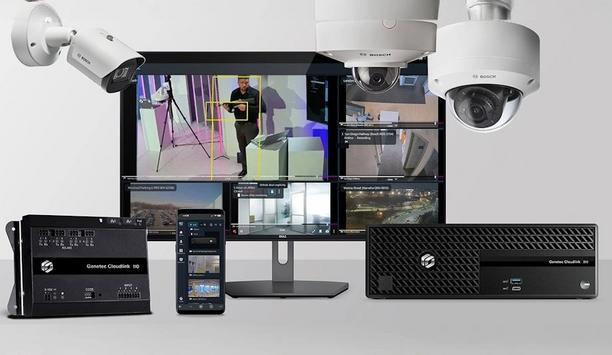Panasonic is selling off 80% of its video surveillance business to a private equity firm but will retain 20%, and the new company will continue to use the well-known Panasonic brand. The move is aimed at reinvigorating a business challenged by new competition from large Chinese companies and lower prices of video surveillance equipment.
Strategic business alliances
Panasonic is establishing a new company made up of its security systems business, and Polaris Capital Group Co. will acquire 80% of the outstanding shares of the new company. The decision was approved by the board of directors on May 31, and the transaction is expected to be completed by Oct. 1.
The new company’s security cameras and software will be sold under the Panasonic brand
Polaris has experience in strategic capital alliances with manufacturers and large-scale companies. Based on that experience, Polaris expects to smoothly and rapidly build the structure necessary for an independent business while preserving the strengths and unique characteristics of the business. The goal is to 'maximise corporate value as an independent company toward IPO (initial public offering) in the future.'
Panasonic brand name to continue
The new company – named Panasonic i-PRO Sensing Solutions Co., Ltd. – will encompass the Panasonic Connected Solutions Company’s Security Systems Business Division and the industrial and medical vision compact camera R&D department of its Innovation Center.
The Public Safety sales and development functions of Panasonic System Solutions Company of North America (PSSNA), and the security camera manufacturing factory in China – Panasonic System Networks Suzhou Co., Ltd. (PSNS) – will become subsidiaries of the new company.
Polaris expects to smoothly and rapidly build the structure necessary for an independent business
After establishment, the new company’s security cameras and software will be sold under the Panasonic brand. Sales will be handled directly by the new company in the U.S. market; through Panasonic System Solutions Japan Co., Ltd. (PSSJ) in the Japanese domestic market; and through existing Panasonic sales companies in other regions including Europe, China, Southeast Asia, Oceania and Canada, which will all sign sales agreements with the new company.
Future outlook
An announcement from Panasonic details plans for the new company: “It will build on the strengths of the Division while benefitting from management and resources of Polaris to seamlessly implement the necessary structure to operate as an independent organisation. Strengthening its solutions capabilities with proactive alliances and M&As, the new company will aim to enhance its revenue and profitability globally centred on the North American market. With new and next-generation products and services, and a strategic growth plan to expand sales of medical camera modules, the new company will build a solid foundation as an independent entity.”
The core business of video surveillance equipment is more competitive than ever
The Security Systems Business Division of Panasonic has a roughly 60-year history of developing security cameras and advanced edge devices and combining these with unique software such as facial recognition to meet the needs of the market. It has established itself as a top brand.
Effect on U.S. market
Panasonic in the U.S. broadened its business approach to increase systems sales with the acquisition of Houston, Texas-based Video Insight in 2015. The developer of video management software especially helped to boost business opportunities in the education market in North America.
More recently, Panasonic has sought to differentiate itself with an emphasis on R&D and new product developments, including artificial intelligence. Last year, the company highlighted its FacePro deep learning facial recognition system using extreme sensing and enhanced detection technology to identify persons of interest and alert authorities of their presence in real-time.
Developments in the offing
The Security Systems Business Division of Panasonic has a roughly 60-year history of developing security cameras
In the near future, Panasonic is also looking to apply AI-based capabilities to vehicle recognition, with the ability to identify vehicle characteristics such as colour, type of vehicle and direction of travel. On the VMS side, Panasonic announced last year its intent to transition its Video Insight software to a modular approach, tailoring solutions for a growing range of vertical markets, such as transportation and retail, all using “plug-ins” that enhance operation of Video Insight software. No additional license fees are involved.
Still, the core business of video surveillance equipment is more competitive than ever. As Panasonic looks to regain its former dominance, it will face an uphill battle. A sharper focus and new management, resulting from the acquisition, may help to turn the tides.








